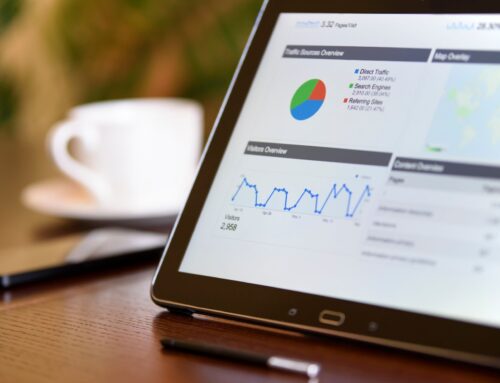As a small business owner in 2024, successfully navigating the dynamic digital landscape is crucial to sustaining growth and staying ahead of competitors. One invaluable resource to help small businesses prosper in this competitive environment is Google Analytics. You can track, analyze, and optimize your website’s performance by effectively leveraging Google Analytics, empowering you to make informed decisions and drive sustainable growth.
Google Analytics is a powerful tool that enables you to collect valuable data on your website’s performance, user behavior, and traffic sources. Understanding this data can mean the difference between enhancing your online presence and losing potential customers. As a small business owner, mastering Google Analytics is essential to gauge your marketing efforts and make data-driven decisions to grow your business.
In this comprehensive guide, we’ll unravel the mysteries of Google Analytics, examining its importance and potential for small business owners. We will guide you through setting up Google Analytics on your website, exploring key metrics, customizing dashboards, and creating reports tailored to your needs. Additionally, we’ll discuss how to leverage Google Analytics to optimize your website and integrate it with other digital marketing strategies for a holistic approach to performance assessment.
A Beginner’s Guide to Google Analytics
The Importance of Google Analytics for Small Businesses
Google Analytics offers small businesses the opportunity to gain valuable insights into their website’s performance, user behavior, and traffic patterns. By leveraging this data, small business owners can make informed decisions about marketing strategies, on-page optimization, user experience enhancements, and more. Ultimately, Google Analytics can be a driving force behind increased website conversions and overall business growth.
What Can Google Analytics Show You?
Google Analytics provides a wealth of information about your website’s visitors, including demographics, location, device usage, browser preferences, and interests. Additionally, you can track user interactions with your website, such as page views, time spent on site, and conversions. This essential data helps you understand your audience’s behavior, identify pain points, and develop targeted marketing strategies to improve your website’s performance.
Getting Started with Google Analytics for Your Small Business
Steps to Set Up Google Analytics
To equip your small business with the power of Google Analytics, follow these steps:
1. Visit the Google Analytics website and sign in with your Google account, or create one if needed.
2. Click “Start for Free” and follow the prompts to set up a new account.
3. Enter your business information, including website URL, industry category, and time zone.
4. Accept the terms of service and click “Create.”
5. You’ll be provided a unique tracking code to add to your website. Follow the instructions to enable data tracking across your site.
Remember that implementation may vary depending on your website’s platform or content management system. Be sure to check Google’s guidelines for your specific platform.
Understanding Key Google Analytics Metrics
Pageviews, Sessions, and Users
Pageviews represent the total number of times a page on your website has been viewed. Sessions refer to a user’s interactions on your site within a specified time frame, while users represent the unique individuals visiting your site. These three metrics provide insights into your website’s overall traffic volume and popularity and the length and depth of visitor engagement.
Bounce Rate and Average Session Duration
Bounce rate is the percentage of single-page visits where the user left your website without interacting further. A high bounce rate may indicate issues with user experience, content quality, or targeting. Conversely, average session duration reflects the average amount of time users spend on your site. A higher average session duration signals increased user engagement and satisfaction.
Traffic Sources and Channels
Understanding where your website traffic comes from is essential for optimizing marketing strategies. Google Analytics groups traffic sources into channels, such as organic search, direct, referral, social, and email. Analyzing your traffic channels sheds light on the effectiveness of your various marketing campaigns and helps you identify areas that need improvement or expansion.
Customizing Google Analytics Dashboards and Reports
Creating Custom Dashboards
Custom dashboards allow you to view the most relevant Google Analytics data for your small business. To create a custom dashboard:
1. Navigate to “Customization > Dashboards” in your Google Analytics account.
2. Click “Create” and choose a template or start with a blank canvas.
3. Add the desired “widgets,” such as graphs, tables, or pie charts, to display the metrics you want to track.
You can personalize each widget with the specific data you need, making it easy to monitor your website’s performance at a glance.
Generating Custom Reports
Custom reports provide more in-depth analysis, allowing you to dive deeper into specific areas of interest. To generate a custom report:
1. Click “Customization > Custom Reports” in your Google Analytics account.
2. Click “New Custom Report.”
3. Specify the report type, such as “Explorer,” “Flat Table,” or “Map Overlay.”
4. Select the dimensions and metrics you want to display in the report and apply any necessary filters or segments.
Customized reports offer actionable insights tailored to your unique needs, helping you make data-driven decisions about your marketing strategies and website performance.
Decoding Google Analytics to Boost Your Small Business Success
Google Analytics is an indispensable tool for small business owners, providing valuable insights into website performance, user behavior, and traffic sources. By setting up Google Analytics, understanding key metrics, customizing dashboards and reports, and leveraging insights to improve your website’s performance, you’ll be well-equipped to drive growth and make data-driven decisions in 2024.
When you’re ready to unlock Google Analytics’ full potential for your small business, our team at Pathfinder Digital Marketing is here to help you navigate the complexities. We offer the knowledge, support, and customized solutions you need for continued growth and success. Reach out to us today, and let’s embark on a journey of mastering Google Analytics for your small business together.






